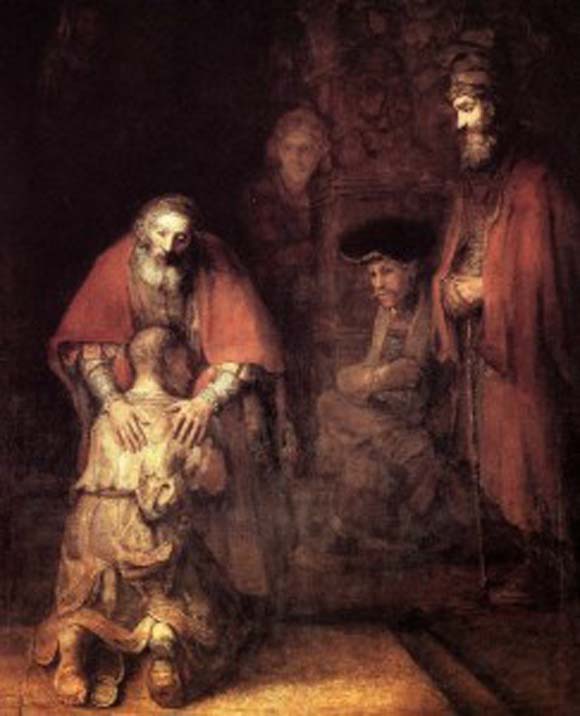
Saturday of 2nd week of lent
523
Readings at Mass: Micah 7:14-15, 18-20; Luke 15:1-3, 11-32
Today’s reading is taken from Luke’s Gospel and the parable is often referred to as the Prodigal Son. The parable could equally be termed the parable of the two brothers and the good father. The prodigal son first of all requests or indeed demands his share of the property, and the father divides up the inheritance. The son travels to a ‘far country’ and squanders away his share on wine, women and luxurious things. This son just wants to enjoy himself, and deplete the goodness that has been given. The good father is widely perceived as being God the Father, and the sons represent elements of humanity. This is a similar contrast to rebellion against God and religion, we want our freedom and are given it, and are free not to obey authority or do as commanded. But when a famine hit the far off country, the son is left with nothing. This false autonomy then leads to the son taking a job feeding a herd of pigs even just to survive. From riches to rags, the prodigal son realises that he has made mistakes with his life and returns home to his father. On his return home, the father sees the son from far off, indicating that the father has either been anticipating the return of his son, or been on edge awaiting some sign of return. The joy that the father shows to his son on return is akin to the lost son being an image of all of us, as we are received into the father’s house. After just a short confession of all he has done, the father gathers the servants together and has a fattened animal killed and a feast for the son who has returned.
But there is also the other son who has stayed faithful to the father. Once he returns from working in the fields and sees this great feast the father has put on for the other son, he quite understandably feels anger and resentment. The father responds with kind words and reassures the son who remained loyal, with ‘Son, you have remained with me, and what is mine is yours’. There are two messages here: the first is for the prodigal son, who has come to realise he has not used his freedom and wealth wisely. There is a message of hope, for even in the worst scenario of the prodigal son being left destitute and starving, he can return to the father’s house and be forgiven. The second message is for the son who has stayed, that he should rejoice in the fact his brother has returned, and take more joy in the faith he placed in his father and give thanks for what he has.


